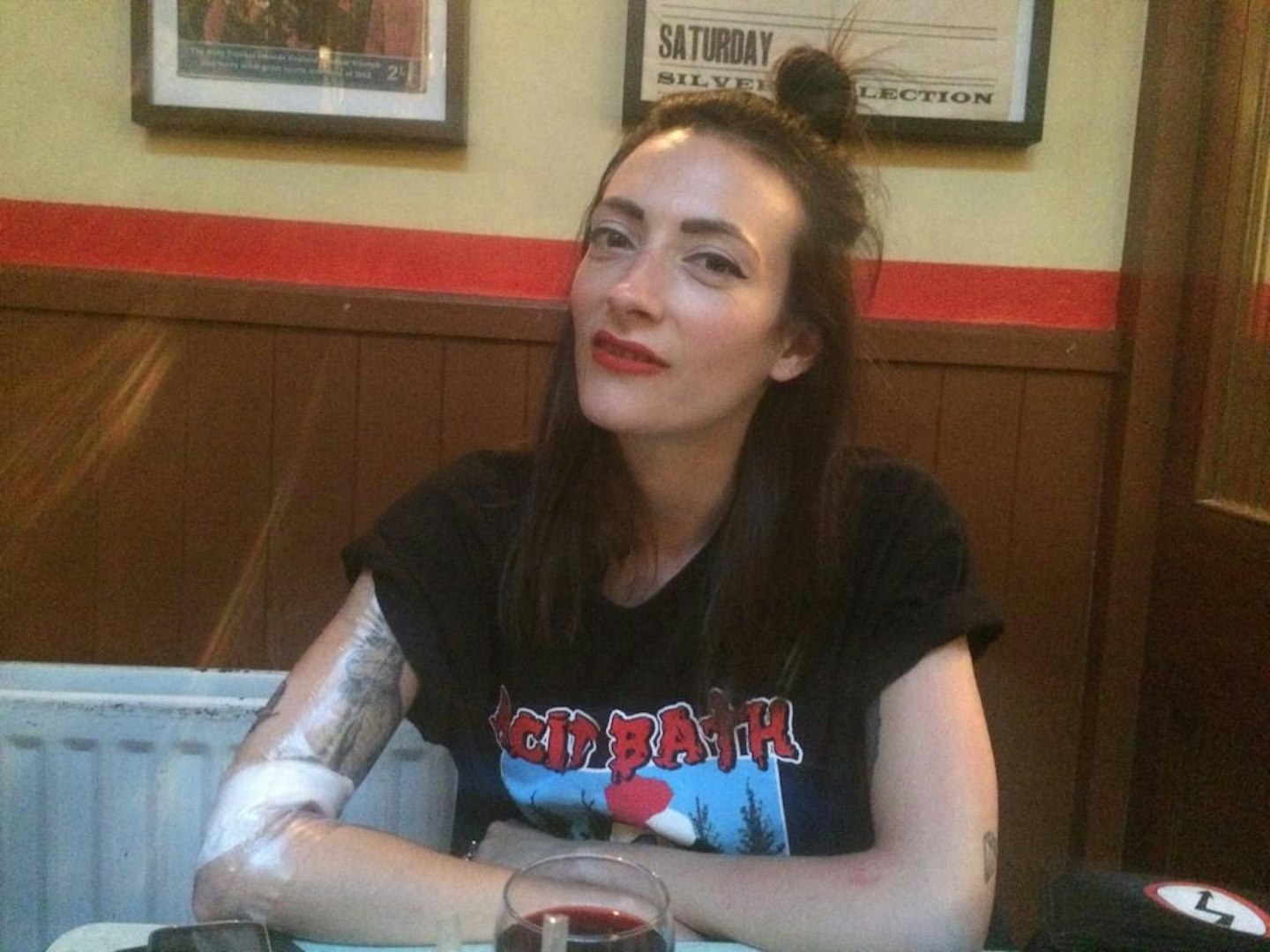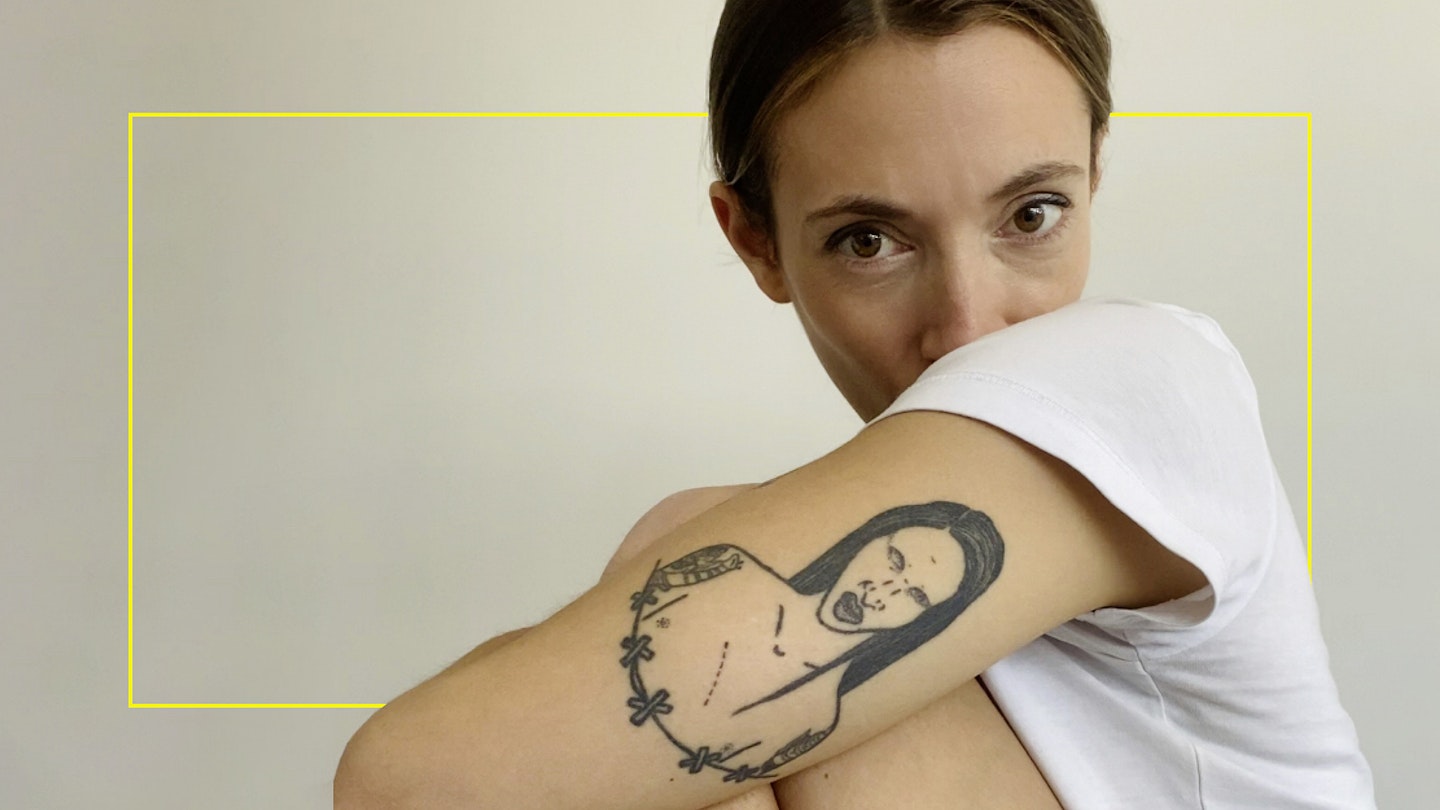If you’re someone who regrets their angel wings, dolphin or rosary tattoo, I feel you. I’ve got angel wings too. They’re on my back, but because I can only see them at a stretch they don’t haunt me too much. Besides, I’ve got bigger things to worry about – literally. There’s a tattoo on my arm, which wraps right around my triceps. In his full Antichrist Superstar glory - shaved eyebrows, white contact lens – it’s unmistakably Marilyn Manson. I knew it was daring and that was before the allegations.
As a teenager I identified as a goth, by my early twenties I labelled myself ‘alternative’. Then all things alternative were becoming a little more hip, with tattoos hitting peak cool status adorning celebrities and catwalks. I landed a media job at Vivienne Westwood which I took as personal validation of my style and substance. In 2013, Marilyn Manson, my long-time hero, was announced as the face of Saint Laurent. I emailed the Hedi Slimane campaign to my sister, a fashion writer, with the subject line: I told you he was cool.
After dabbling in a few tattoos, the aforementioned angel wings, a slightly bigger Frida Kahlo, I decided to seal my Manson devotion in ink. The night before the appointment my boyfriend asked me if I was sure? - Yes, perhaps consider somewhere a little discreet? - No. In a tattoo parlour, with the buzz of rock music and surrounded by artists inked head to toe, you can get swept up and feel fearless. So, when the outline was bigger than I pictured, I said nothing and relaxed my arm. When I left I loved it and equally thought, “Gosh, what have I done?”

My punk aesthetic softened over time. I chose my times to rock my tattoo and my times to wear a long sleeve tee. Manson, on his part, changed too. He reinvented himself with each album and stayed current, keeping my fandom alive. Then, this month, the abuse allegations dropped. I didn’t see it coming, foolish perhaps, but Manson had been an iconic scapegoat and master at batting off controversies before. The dust had always settled, but this time the abuse allegations from Evan Rachel Wood (Manson’s former fiancé) seemed more set in stone. I’d gone from having my hero on my arm to a portrait of a man accused of assault, coercion and domestic violence amongst other horrifying allegations. I didn’t feel that simply claiming I loved his band’s music would cut it, because the truth was he had always been so much more to me than that.
In the wake of what felt like a betrayal, I decided that the tattoo had to come off. I already knew a tattoo cover up wasn’t an option, Manson wouldn’t morph into a magnolia nor could I add a new hairdo and make him Monroe (à la Megan Fox) - I would need a total blackout. Instead, I booked a consultation at a laser clinic, optimistic that black was supposedly the easiest ink to remove. Seeing celebrities with lasered off tattoos - like Victoria Beckham’s disappearing Hebrew and Angelina Jolie’s adios to Billy Bob - bolstered me. Where a tattoo parlour is all passion and bravado, a laser clinic is a stiff reality check. The nurse inspected my arm and delivered another dose of bad news - my tattoo was deep and there was scarring, which would take one, maybe two years of expensive treatment to remove, with the possibility it may never truly fade at all.
I’ve been seeing a counsellor, an open and unshockable Californian, working through the trauma of losing my husband, Cam, in 2019. In a recent session, I sheepishly bought up the tattoo with the proviso: “I have a big problem which has nothing to do with grief”. To the contrary, she informed me, it is a lot like grief. I was going through the stages of loss, of a tattoo that I thought meant one thing and now radically meant another. Certainly there was the anger and depression, then there was the bargaining too - what if I had got Courtney Love instead, or listened to Cam and placed it somewhere more discreet? The important thing, she reminded me, is that to move forward you have to clock the final stage - acceptance.
That’s exactly what I’m left with; I have to accept the regret. My tattoo doesn’t deny or condone Manson’s behaviour; I got it because of who I thought he was, who I adored, in 2015. It’s a landmark of a time when I lived without fear of the future, or of growing up - a time when I was a young and living in London, a time when my husband was alive. Things change in ways you’ll never predict. You’ll have regrets and you’ll keep going. When I catastrophise, or think too far ahead, my arm will be right there reminding me of that. Perhaps if you look hard enough too, you can find something good in your bad tattoo.
